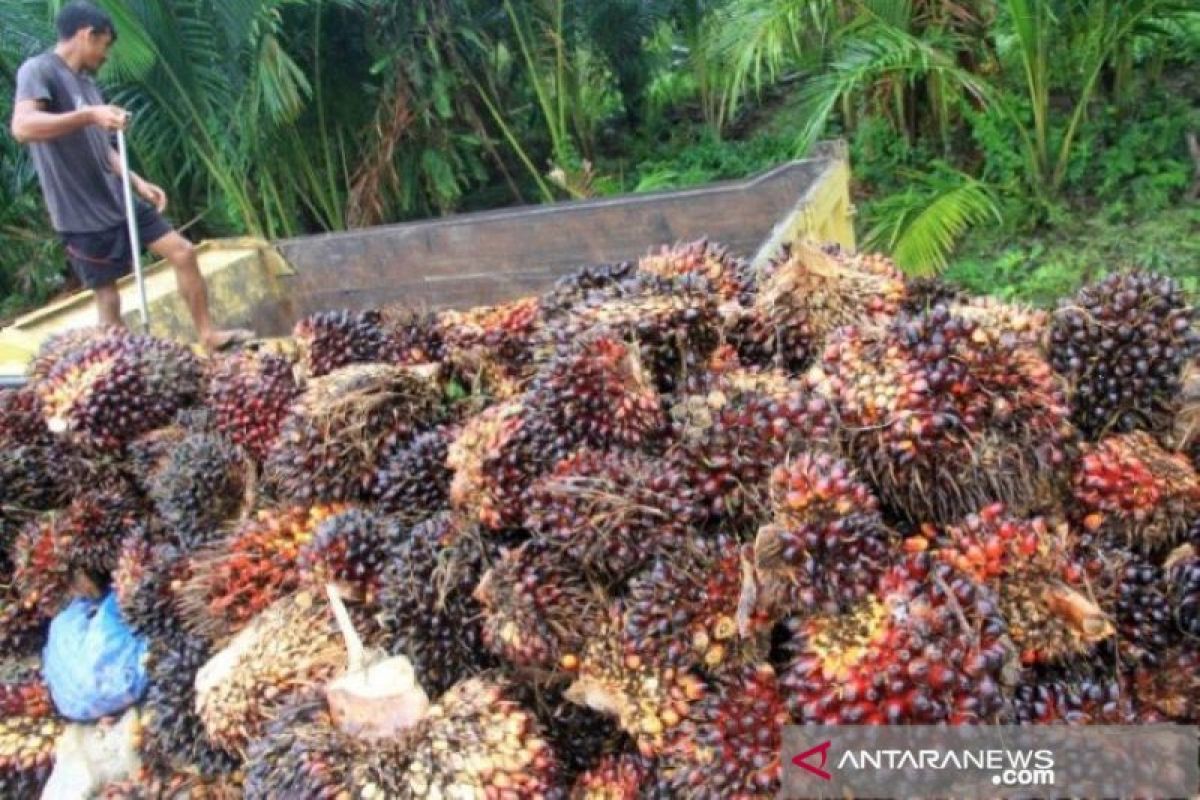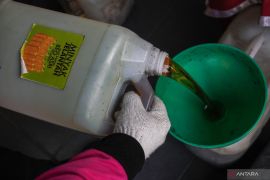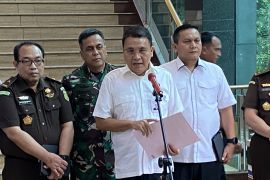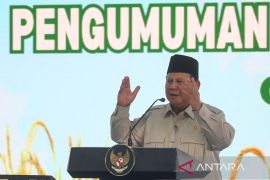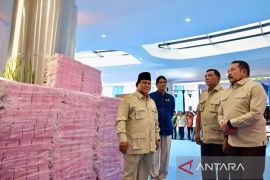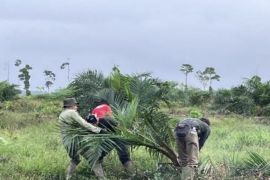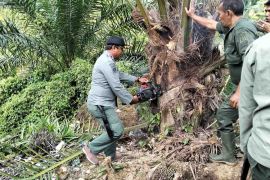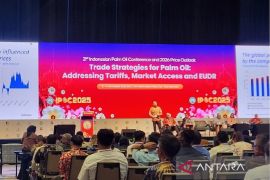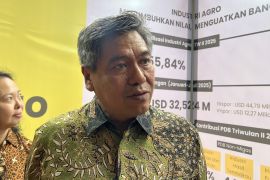The government should provide incentives to them because the government must be responsible for the policies implemented, especially for those who are most vulnerableJakarta (ANTARA) - The government should absorb palm products from small farmers, as the price of palm Fresh Fruit Bunches (FFB) decreased after the export ban was imposed, according to the House of Representatives' (DPR's) Commission VII member, Mulyanto.
"The government should provide incentives to them because the government must be responsible for the policies implemented, especially for those who are most vulnerable," Mulyanto noted in a written statement here on Saturday.
The House member remarked that one of the important incentives to ease the burden on palm oil farmers is to absorb the FFB products at a reasonable price, for instance, by buying and processing mandatory biofuels from palm oil owned by the people.
Related news: Traders association supports CPO export ban
Moreover, Commission VII of the House and the Ministry of Energy and Mineral Resources (ESDM) have agreed to increase the quota of subsidized diesel to 17 million kiloliters for 2022, from around 15 million kiloliters earlier, he remarked.
With the 30 percent biofuel (B30) Program in place, the government can absorb over five million kiloliters of crude palm oil. If the program can be increased to 40 percent (B40) or 50 percent (B50), then the government can increase the crude palm oil produced by the people.
According to the House member, state-owned enterprises (BUMN) in the plantation sector and their subsidiaries that process plantation products should also be encouraged by the government to increase the absorption of FFB from the people.
Mulyanto believes this step will relieve the burden on palm oil farmers due to the impact of the ban on the export of CPO and its derivative products.
Based on data from the Ministry of Agriculture, the area of palm oil land owned by people in 2019 had reached 5.9 million hectares, or some 41 percent of the total national palm oil area.
Related news: AGO grills two officials over CPO export-related corruption case
Some four percent of that figure is the land owned by SOEs, while the other 55 percent constitute large private palm oil lands. With the policy of banning palm oil exports, the percentage of palm oil land belonging to the people affected by the ban is considered quite large.
Earlier, the Indonesian Farmers Harmony Association (HKTI) had expressed optimism that policies related to palm oil would not harm farmers in order to maintain their level of welfare.
"I hope that policies in the palm oil sector would not harm farmers. The ban on the export of cooking oil raw materials and the export of cooking oil to ensure domestic stockpiles were maintained had harmed palm oil farmers," HKTI DPN chairman Fadli Zon noted in a written statement here on Wednesday.
Related news: Southeast Sulawesi high school students mass-produce coconut oil
Zon opined that an export ban is not a solution, as the scarcity of cooking oil in the country is not caused by the amount of stock but rather by the lack of law enforcement related to Domestic Market Obligations (DMO).
Hence, the HKTI has urged the government to immediately revise the export ban policy.
The HKTI noted that the COVID-19 pandemic had paralyzed almost all sectors. However, in the midst of an economic growth of minus 2.07 percent, the agricultural sector continued to grow positively at 1.75 percent and even recorded exports.
Related news: Exodus effect on COVID-19 to become visible in fortnight: Governor
Related news: Homecoming posts built in collaboration with private sector lauded
Translator: Katriana
Editor: Fardah Assegaf
Copyright © ANTARA 2022
